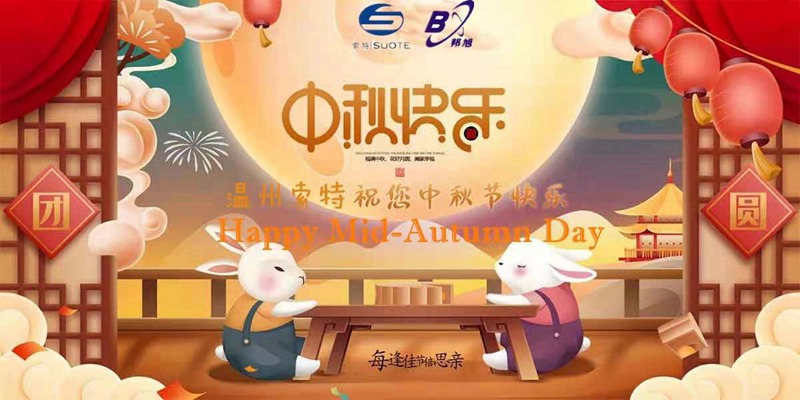索特資訊
公司動(dòng)態(tài)
溫州市索特醫(yī)藥化工工程有限公司祝大家中秋節(jié)快樂
發(fā)布時(shí)間:2023-09-26
月到十五分外明,人到中秋情更濃,;金秋季節(jié)景更美,,圓圓明月更傳情;遙寄情思與明月,清輝脈脈祝福行;祝君坦途通仙境,國盛家富事業(yè)興,。祝中秋快樂!
中秋節(jié)是我國傳統(tǒng)的節(jié)日,,關(guān)于它還有很多美麗的傳說,。
Mid-Autumn Legend-the moon fairylady
Many years ago, there was a king in China. He was a brave man who did lots of belifits to the people. He admired a beautiful girl and made her stay in the palace so that he could see her whenever he wanted. But, the girl did not like the frightful figure of the king. She seldomly spoke a word in the palace. Each time the king went to her place, he used to show her some treasures and brought some gifts to the girl in order to make her smile and speak.
On every full moon, the girl would burned incenses and wax candles to worship the moon. People believed that there was a god lived in the moon that made the moon shine. Girls who wanted to be a beauty and have a handsome husband should worship the moon.
One day, the full moon of the eighth month, the king brought three herbs pills to show her.
"This is from the priest of the palace. If I eat them up, I can live forever." He exclaimed.
This was the first time the girl stuffs he brought.
He continued,"If you and I both take one, we will both live forever. No one can take you away from me!"
Because the king afraid of the pills would have side effects. He forced the girl to take the pill first. If nothing wrong with her after taking the pill, he would take it immediately. However, the girl recognized that if she took all three of them, the king would left her eventually. Therefore, the first time, she spoke to the king,"Let me have a look of the pills first. Otherwise, I will not try at all."
The king surprisingly the girl talked to him. So, he handed the pills to the girl. She did not say anything but eat all of them. The king was extremely angry. He wanted to kill her.
At this moment, the girl started to fly. She could fly because of the intake of the pills. The king could not catch her, but watched her flew toward the moon and disappeared.
After that, people believed that there was a beautiful
girl stay in the moon with a little old man and a bunny. The old man was believed to be the god inside the moon and the bunny was his pet. Day after day, Chinese believed that there were people lived in the moon. Their movement made the dark spot when we looked up to the moon. People used to worship the girl to glorify her chastity. So, on every full moon of the mid-Autumn became a festival in order to memorize her.
Moon in Chinese Celestial Cosmology
The choice of the festival's theme -- celebrating the glories and mysteries of the moon -- was a natural. Along with the sun, the moon has long been an object of human curiosity and worship. "It is probable that sun and moon were early held to be deities and that they were the first visible objects of worship," according to the book "Sketches of the History of Man." To the most ancient ancestors of the Chinese, the sun and the moon were considered the "chief objects of veneration," according to records dating to the Han dynasty emperor Wu Di (157-87 B.C.).
In ancient Asian mythology, there is a strong relationship between the moon and water. The moon is said to regulate reservoirs and supplies of water. There is a suggestion that the moon produces fertility and freshness in the soil. The moon's role in bountiful harvests is widely recognized during autumns around the world.
In Chinese celestial cosmology, the moon represents the female principle, or yin. During ancient autumn Moon Festivals, women took center stage because the moon is considered feminine. Only women took part in Moon Festival rituals on the night of the full moon. Altars would be set up in households, and when the full moon appeared, women would make offerings of incense, candles, fruit, flowers, and mooncakes.
The enduring legend of the Moon Goddess, Chang O (Chang-E in other transliterations), reflects the feminine principle of yin, as opposed to the masculine principle of yang, which is symbolized by the sun.











